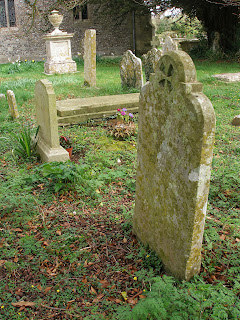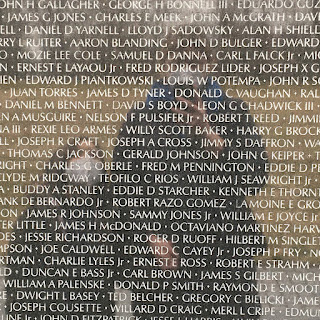A sad seasonal story: Henrietta Small of Salisbury
Henrietta was
one of eight siblings, of whom she and three brothers survived to adulthood. She
was born in 1828, ‘a very delicate & sensitive child’. (1) Education was
clearly important to the family, and William’s writing is particularly valuable for the information it
provides about his sisters’ education. Henrietta
attended four schools, including Miss Naish’s at the Rose & Crown, Mrs
Lucas’s in Exeter Street and Mrs Kingdon’s. ‘After leaving school she went to
Mrs Griffins, on the New Canal, to learn the trade of a Milliner & was
highly esteemed...she staid there for years, until her mother wanted her, for
home duties.’ Such was the lot of many women of the time. Henrietta cared for
her increasingly elderly parents until their deaths, William senior in 1863 and
her mother Maria in June 1877.
Like her mother,
Henrietta was a committed Methodist, and ‘she was a zealous Teacher in the Sunday
school, for more than a quarter of a century’; she was ‘well received &
much beloved by her class’. William hinted that Henrietta had an admirer, though
she never married: ‘A certain young man used to come to the house…almost every Sunday
afternoon, a well disposed and Godly young man, & I think (a local preacher)
she was fond of him I believe’.
William described
the deaths of his parents in some detail, but for his beloved sister Henrietta
we can read of her final days almost moment to moment. Taking in lodgers was a
common source of additional household income. Students at the Training College
in the Close came from a considerable distance, and often lodged locally for
the examinations. Four stayed at the Smalls’ at the end of the Autumn term, 1877.
Henrietta ‘having no assistance, which made her have a great deal to do to wait
upon them & get their meals, they left on the 21st Decr. Friday
but one staid for the Evening Train to Southampton, she went with her to the Station
& staid there some little time waiting & having taken a cold, as it was
a frosty night’.
Over the next
few days Henrietta’s health deteriorated. She ‘managed to make 1 or two figged
puddings, for Christmas, but never to taste them’. Cared for by the female
lodger, and by William, she was ‘in a very serious state’ when they did send
for the doctor on Christmas Day. Despite
this William attended the Cathedral in the afternoon, he noted that they had
discussed going together ‘to hear that beautiful Anthem “The Shepherd”’. On his return he seems to have realised what
was happening, and fetched his brothers and their wives. Not long after, Henrietta
‘passed away without a Sigh or a groan, on the Dear bosom of her Lord, whom she
had served truly & Faithfully for many years’.
Grave of Henrietta Small in the churchyard of
St Peter's, Britford, Wilts (Photo J C Newman)
In the following
paragraph William mused that he thought Henrietta had a presentiment of her
death, both because she had told him of her desire to be buried at Britford with
‘Dear Father & Mother’, and because ‘she bought me 2 New neck Handkerchiefs,
I front, 2 New aprons, & other little things, & made them for me,
without my asking for them, perfectly knowing in her own mind that she was going
to leave her poor distressed brother William…’
Although his
brothers suggested burying Henrietta ‘at the Cemetery as it would be extra fees
at Britford’, William stood firmly by her wishes and went to see Rev Mr Morres
the following morning to make the arrangements.
Then he ‘put a piece of very stout plate Glass in my Sister’s coffin,
& wrote an inscription on it, with my diamont, which will last for ages,
under ground, or in the sea, and whoever finds it in future generations, which
no doubt some one will, They will find the writing as clear & fresh as ever,
I shall not say what I put there but I know’.
For William,
the loss of this mother and sister within six months of each other was clearly
a serious blow, and perhaps one from which he never recovered. He wrote several
times of both deaths with profound grief.
Henrietta was just one of many, many ordinary women in the nineteenth century who led simple lives bounded by their family and community. What is extraordinary, and where we are so fortunate, is knowing so much about her, thanks to the chance survival of her devoted brother William’s writings.
(1) All the
quotations are from William Small’s Cherished Memories & Associations
References:
Jane Howells
& Ruth Newman (eds), William Small’s Cherished Memories &
Associations; Wiltshire Record Society, Vol 64, 2001
Ruth Newman & Jane Howells, ‘William Small Rediscovered’, Sarum Chronicle 16, 2016, pp 58-78
Jane Howells is the editor of Local History News for the British Association for Local History. She is the co-author with Ruth Newman of Salisbury Past, and in 2011 they edited and transcribed William Small’s Cherished Memories and Associations for the Wiltshire Record Society. They have also written Women in Salisbury Cathedral Close. Jane’s PhD thesis was on Independent Women in Victorian Salisbury. She is a member of the standing committee of the West of England & South Wales Women’s History Network.




Comments
Post a Comment